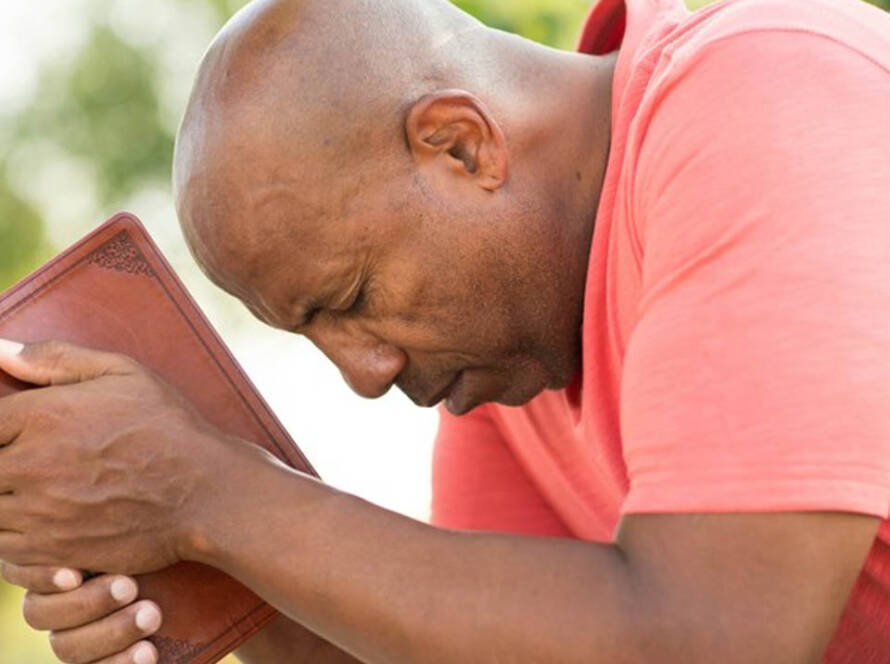We know that Jesus calls us to forgive. He talked about it a lot while He was here on earth, and then gave us the ultimate example of forgiveness through His work on the cross. However, many of us don’t really understand how forgiveness works. We just try to white-knuckle our way to it or try to stir up some feeling of forgiveness within ourselves. We remind ourselves that Jesus has forgiven us, so we ought to just forget whatever was done against us—we should “be a good Christian” and “let it go.”
It doesn’t work though, does it?
We “forgive them” but carry resentment or bitterness. The next time they mess up there’s that much more anger stored up from the last time they did this. We say we forgive them, because we know we’re supposed to, but we don’t feel free. Why can’t we seem to forgive from the heart, especially if the other hasn’t repented? Most of us have never been taught that forgiveness has an order, and it may not be what we expect.
#1. I have to admit something happened
If we are going to move forward into healing and freedom—which is what Jesus is always calling us into—then we need to admit that not all is right in the neighborhood. Something happened. We were hurt, harmed, or sinned against. It may have been intentional or an accident, a pattern or a one off. Regardless, we need to admit that something happened instead of burying it or brushing it off.
#2. I must get in touch with the consequences
This is often painful. It can be helpful to have a good friend or counselor with you for this. Not only did something happen, but it had consequences in your life. We need to get in touch with those ripple effects in our daily lives. Here are some questions you can use to guide you:
“Have I experienced shame? Have I become fearful? Have I felt demeaned or devalued? Was I manipulated or shunned? Were there relational effects? Did I lose credibility or access with friends? Was my marriage affected? Did it impact my relationship with my children or people I work with? Did it affect my job, my income, or my future? Did I lose my position or influence? Has this changed how I see myself or my attitude towards love, trust, friendship…God?”
#3. I must tell God what happened to me
This is one of the most beautiful parts of forgiveness. We get to bring it all to God, both the event and the consequences. We can cry, or yell, or just sit in silence with Him. He wants us to tell Him everything, to get it all out, until we feel sure that He understands. “He wants to hear it all. He wants to enter into every tear, every detail. He’s been waiting for this moment.”
#4. I must forgive the offender, for my benefit
Yes, for my benefit. This is one of the pieces many of us miss in forgiveness. We must go through vertical forgiveness (between me and God) before we move to horizontal forgiveness (between me and another person). Vertical forgiveness doesn’t excuse any action or restore a relationship. It is a choice to free ourselves, to begin healing. Trusting God’s character, strength, love and protection, we place the entire list of consequences into His hands. “I trust God will not mock me, or ignore this, or forget my pain. I trust He will protect me and defend my heart, bringing beauty out of hurt. I trust He will cleanse me as He promised.” (The Cure) We hand the entire matter over to the only One who can see the entire story, who loves both us and our offender perfectly. The whole incident moves out of our sphere, and into God’s. This allows us to live free, regardless of how our offender chooses to act.
#5. I tell my offender that I’ve forgiven them when they repent, for their sake
This is the horizontal portion of the forgiveness. Now that we have chosen freedom and healing between us and God, we are ready to give that to our offender. We do need to wait until they repent, however, or we rob them of their own process. When they are ready to own what they’ve done, we get to extend to them the freedom and forgiveness we are already living in, for their sake.
#6. I must distinguish between forgiving and trusting my offender
“Forgiveness carries the hope of renewed trust, but it offers no mandate or guarantee.” -The Cure
Forgiveness and trust are separate issues. Once we’ve gone through the process of true, heartfelt forgiveness, trust longs to follow, but that doesn’t mean it will. Trust takes time and consistency. You may have truly forgiven your offender, and yet still not trust them. That’s okay.
#7. I must seek reconciliation, not just conflict resolution
Often, we don’t want reconciliation. We want conflict resolution, so we can “fix” the issue, get past it, and leave the relationship to die. It makes sense that we feel this way, especially in light of what we’ve just said about trust and forgiveness being separate issues. But grace longs for reconciliation, for the renewing of a relationship, rather than the fixing of an event. This is not a demand or a requirement, but rather an invitation. Reconciliation requires more courage and endurance, refusing quick fixes in favor of authentic relationships over the long term, but it also carries more beauty and power.
How can I apply this today?
First, ask yourself if there’s anyone in your life that you need to forgive. Is there something you’ve been holding on to? Is there someone that you prefer not to think about, because it still causes you pain? Is there a relationship you’re avoiding because you haven’t been able to move past something they’ve done?
If there is, try walking through these steps of forgiveness, maybe with the help of someone you trust. Don’t be discouraged if you have to go through these steps a couple of times, even for the same situation. Sometimes as we move forward we get in touch with consequences we hadn’t realized before, and we have to once again bring them to God. Today, we encourage you to choose freedom for yourself, to experience God’s healing power, regardless of if the person that hurt you is ready to ask for forgiveness. We are made to live free and authentic, and, as in all things, God has made a way for that.



